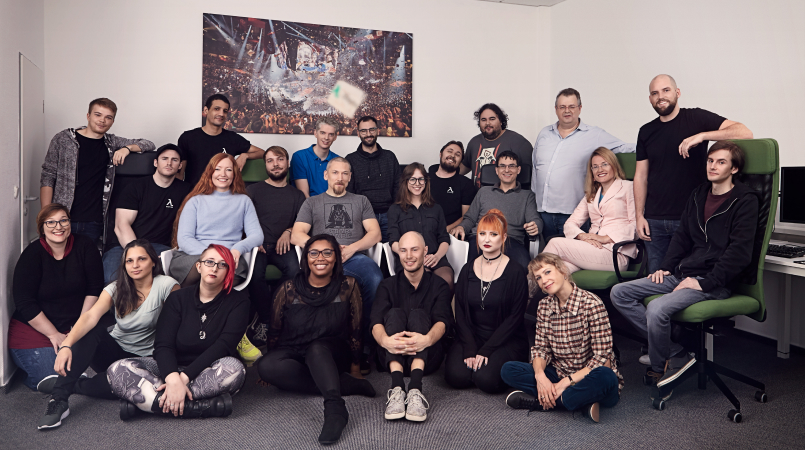Mentioned in this article
League/Tournament Brands:
- Esports data company DOJO Madness has announced it will focus entirely on corporate customers, changing its name to Bayes Holding.
- The holding includes two subsidiaries: team and tournament analytics firm Shadow, and Bayes Esports Solutions—a data distributor co-owned with Sportradar.
- The leaders of Bayes, along with other esports stakeholders, recently met with Berlin mayor Michael Müller at the city’s town hall.
DOJO Madness has changed its name to Bayes Holding as it reshifts focus entirely on B2B customers. Former CEO Jens Hilgers, has taken the position of managing director of the non-operative holding company, alongside Alexander Fuhrmann.
Bayes Holding houses two Berlin startups: Shadow, which develops analytical tools for esports teams and tournaments, led by managing director Benjamin Riewe; and Bayes Esports Solutions, which distributes esports data to customers in the betting, broadcasting, and media space, helmed by CEO Martin Dachselt.
Originally addressing the coaching and training space, DOJO Madness’ B2C products were heavily reliant on data from the underlying games. Hilgers explained to The Esports Observer that this market turned out to be smaller than expected, and its fragmentation was an ever-present challenge.
“Each game makes its data available proactively or, in most cases, not proactively in different ways,” he said.“That is a lot of work to do for every single game, and that is where the fragmentation is posing the real problem. Interestingly enough though, what we’re doing with Bayes is actually trying to solve that problem.”
Even for the successful DOJO apps, such as the LoL Sumo product for League of Legends, hardcore players would temporarily jettison to new popular games, leaving too small a market behind. “Our other approach, to build an app that supports multiple games, as Jens said, […] there are legal restrictions—some companies not only aren’t offering an API to extract the data, but they actively forbid them to use it in a monetized context,” said Dachselt.
While Shadow was first launched in 2016, Bayes Esports Solutions came into existence in January 2019, as a co-venture with Sportradar. The phasing out of the B2C business units included the closure of Zack, a data assistant for gamers, resulting in layoffs for around a dozen employees.
In October this year, Bayes Esports Solutions opened up its BEDEX marketplace, providing data supplied by partners including Riot Games, ESL, and DreamHack. While buyers are confidential, Dachselt disclosed that the customer base includes fantasy products, sports publications, betting service providers and bookmakers, as well as use cases the company hadn’t anticipated; such as player scouting and media valuations.
“If a sponsor wants to invest in a team, they want a prediction on how the team will perform, to optimize their ROI,” said Dachselt. “On the other side, the sponsors of tournaments want additional tools to increase the engagement of their viewers.”

Hilgers and Dachselt, along with many other esports representatives, recently met with Berlin mayor Michael Müller. On top of housing numerous publishers and startups, the city is the field on which the League of Legends European Championship (LEC) is played weekly.
“It was encouraging to see the mayor invite us to the town hall. It’s a big sign of support and interest,” said Hilgers, who added a number of influential members of the mayor’s staff were in attendance as well. “I do believe this group will now rally together and come up with a meaningful plan with how to strengthen Berlin and give it even more exposure, in terms of esports.”
These sentiments were echoed by Dachselt, who felt more concrete proposals were brought to the table than in previous exchanges between government and gaming. “For example, to take successful teams and players in Berlin and perhaps bring them to town hall and make them known to the broader public,” he said.

